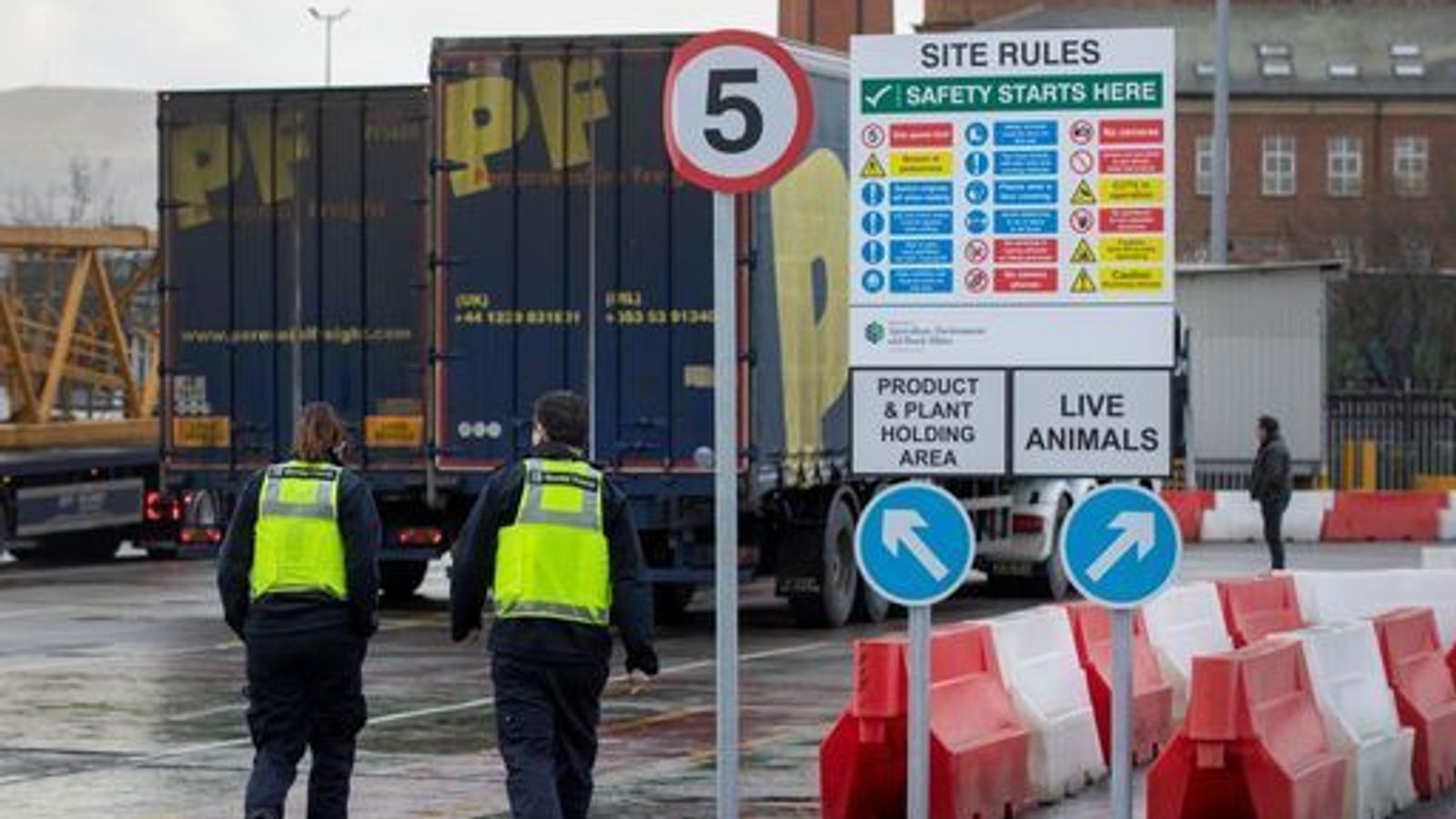The UK government is tabling legislation to end post-Brexit checks on goods moving between Great Britain and Northern Ireland.
Significantly, the Withdrawal Act will also be amended, meaning EU law will no longer apply automatically in Northern Ireland.
The details are contained in a government document which effectively details the deal to restore power-sharing at Stormont.
The 80-page document comes in three parts: one setting out changes to the law and their impact, an annex on the constitutional context, and a second annex on additional measures to strengthen Northern Ireland’s place in the UK.
Those measures include an East-West Council, a new trade body and one UK cabinet meeting in Northern Ireland annually.
The changes will have an impact on the Windsor Framework, the deal Rishi Sunak signed with the European Union.
But sources close to negotiations say they “will come as no surprise” to Brussels, which has been kept informed.
Words like “flexibility” and “pragmatism” are being used a lot by players on all sides, as well as the feeling that “conversations have produced trust”.
A Commons vote on the details contained in the legislation is expected tomorrow.
The legal changes reflect what has been described as “the democratic deficit”, giving Stormont a greater role in scrutiny.
That strengthens the Democratic Unionist Party’s (DUP) argument for a restoration of the power-sharing government at the heart of the peace process.
The document, titled Safeguarding The Union, sets out the government’s intentions of what it wants to achieve in Northern Ireland, which has been without government since 2022.
The DUP had collapsed power-sharing at Stormont in protest against post-Brexit trade arrangements, which left a trade border down the Irish Sea and additional checks on goods travelling between Great Britain and Northern Ireland.
Westminster has recently been locked in talks with the DUP aimed at securing the return of Stormont in return for addressing some of the DUP’s concerns.
In the early hours of Tuesday morning, it was revealed an agreement had been reached, paving the way for the assembly to get up and running again.
And following the publication of the government document, DUP leader Sir Jeffrey Donaldson said the automatic appliance of EU laws to Northern Ireland would end.
“At the moment EU law automatically applies to Northern Ireland, whether it is a change to EU law or a new EU law,” he said.
“Under the protocol we had no say, the Assembly was not consulted on that, there was no democratic scrutiny in Northern Ireland of those laws, they just automatically applied. These new arrangements end that.”
Sir Jeffrey said Article 7A of the Withdrawal Act would be amended to “end the automatic pipeline of EU law applying to Northern Ireland”.
He said that meant Northern Ireland “will have new democratic scrutiny mechanisms in the Assembly”.
“The Assembly will be able to scrutinise any new laws that are coming forward. Assembly members will be able to say if they think that law is going to be harmful to Northern Ireland and our ability to trade, in other words, divergence.
“The Assembly will be able to say no, that law should not apply in Northern Ireland and the UK government has the right to veto that law on behalf of Northern Ireland.
“There is a new process that is being put in place that ends the dynamic alignment of EU law in Northern Ireland.”
The prime minister’s official spokesman said the legislation would not alter the “fundamentals of the Windsor Framework”.
“We do believe the changes we are implementing are significant and the DUP have made similar comments,” he said.
Pressed on what the “significant” changes were, he said that they were to the “operation of the framework”.
He declined to say whether talks have been held with the EU, saying he would not discuss “private conversations”.
He added: “It’s important to make clear that this was a negotiation between the UK and the DUP about ensuring the framework operates properly within the UK.”











